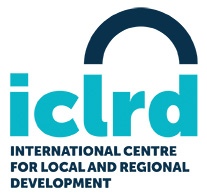The ICLRD engages in action research with local governments, communities and central agencies; publishes Irish and international case study research to evaluate and develop good practice models; promotes evidence-based planning; hosts conferences and workshops on key themes; and delivers training for key stakeholders in the physical, social and economic development of the island of Ireland.
Action Research
One of ICLRD’s primary activities is applied research into the social, economic and environmental dimensions of spatial planning, reconciliation and community regeneration and inter-regional and cross-border co-operation. ICLRD’s research brings together universities, government and community groups to address the spatial aspects of peace and reconciliation at three scales: the island of Ireland; the EU regional which includes cross-border and cooperation among local councils on each side of the border; and local with a particular focus on encouraging communities to take a proactive role in creating a stable society.
To see all of ICLRD papers and publications, including its research reports, click here.
Training and Capacity Building
A core activity for ICLRD is to offer professional education programmes for public officials, civic leaders, non-governmental organisations and other practitioners involved in local, regional and national development. Devolution in Northern Ireland, the shifting of new responsibilities to local authorities, and cross-border programmes that increase the role of local governments in developing and managing their cross-border programs all point to the need for new capacity building programmes. ICLRD capacity building activities emphasise knowledge transfer through our conferences and technical workshops. Our research activities and expanded networks provide timely case study materials, best practices, and operational linkages to EU cross-border programmes. For more information on current and past training and capacity-building activities click here.
Advocacy and Demonstration – Evidence-Based Planning
In its research on inter-jurisdictional and cross-border planning ICLRD has shown that one of the first entry points to developing cooperation among central and local governments is providing information and shared evidence on common issues such as housing, trade, environment, transport and services. The process of collection, joint analysis, reports and forums can help to build an agenda for action around common interests and challenges. In collaboration with the Maynooth University Social Sciences Institute (MUSSI) and its All-Island Research Observatory (AIRO) initiative, the ICLRD is supporting evidence-informed decision-making.
For more information click here
Technical Assistance and Outreach
The ICLRD provides technical assistance and outreach to local government agencies and communities to help them deliver specific programmes often identified through ICLRD’s training or research activities. Recent examples include:
- Assisting the Newry and Mourne District Council and the Louth Local Authorities to prepare and adopt a Memorandum of Understanding (MOU) for cooperation in: emergency planning, renewable energy and green technology, tourism and recreation, sustainable economic growth and job creation (documentation available here).
- Supporting the cross-border development associations of Truagh, Aughnacloy, Aghaloo, The Bawn, Loughans, Clara and Carrickroe in the Monaghan/Tyrone Border area to jointly develop a community business and social economy plan.
- Supporting Armagh City and District Council and Monaghan County Council in the drafting and adoption of a Memorandum of Understanding (MOU) which reflects the ambition of the councils to progress a number of strategic initiatives for the mutual benefit of all those living, working and visiting the region. Key areas of focus included: Tourism, Economic Development and Prosperity and Shared Services; selected because of their long-term strategic importance to the sustainable development of the region.
- Facilitating the local councils in the NW Region, and the then North West Partnership forum, to facilitate cross-border engagement at a strategic level, and develop an Action Plan. This was developed with financial support from the Department of Foreign Affairs and Trade ‘Reconciliation Fund’.
- Providing external engagement support to the Irish Central Border Area Network Ltd. (ICBAN) in the form of a Study, specifically focusing on revitalising border towns and villages throughout the 8 Councils area of the Central Border Region. Th study took the form of an interim briefing paper and a final position paper.
- Facilitating the North West Strategic Growth Partnership (NWSGP), a unique partnership established in 2016 through the North South Ministerial Council that brings together senior Government officials from all Government departments in the Republic of Ireland and Northern Ireland to meet with Donegal County Council and Derry City and Strabane District Council to deliver on the strategic priorities aimed at bringing real and positive change for the North West City Region (NWCR). The work of the NWSGP is underpinned by the ‘The North West Strategic Growth Plan: A Model for Regional Development and Growth of the North West of the Island of Ireland’, developed by the ICLRD in collaboration with both Councils and a number of the Government Departments, North and South.
- Appointed as Client Advisor to the North West City Region commissioned study ‘Atlas for a City-Region: Imagining the Post-Brexit Landscapes of the Irish Northwest’. This work was undertaken by Harvard University Graduate School of Design during 2018-2019. See https://www.gsd.harvard.edu/project/atlas-for-a-city-region/ for further details.
Conferences and Events
Bringing policy makers, academics and practitioners together to identify practical solutions to today’s challenges is a core ICLRD activity. Our conferences and technical workshops play an important role in shaping cooperation on the island of Ireland in the areas of spatial planning and local and regional development.
Reports on past ICLRD conferences may be accessed here
